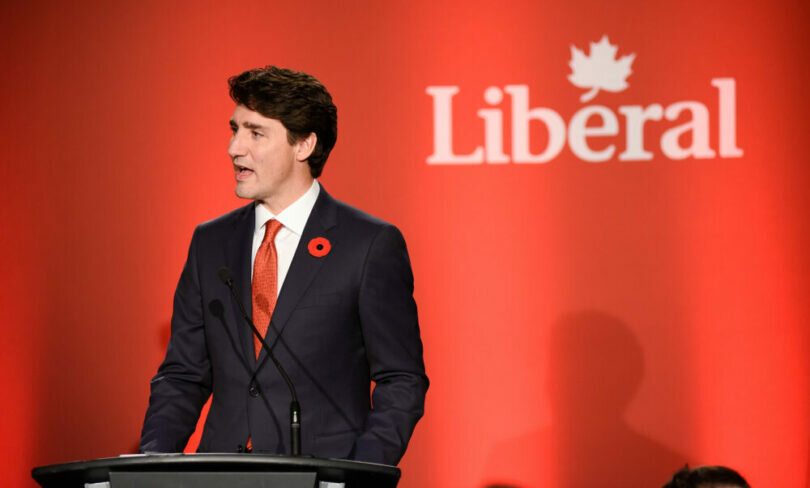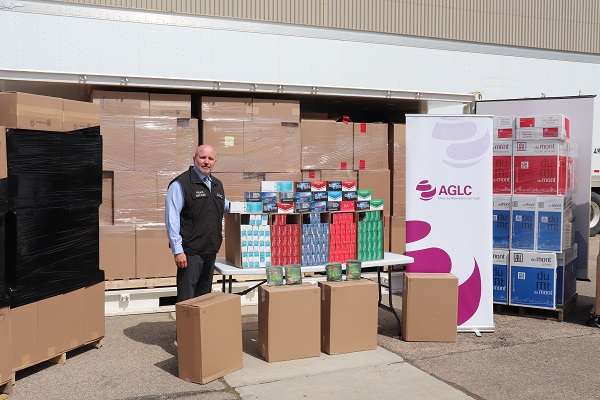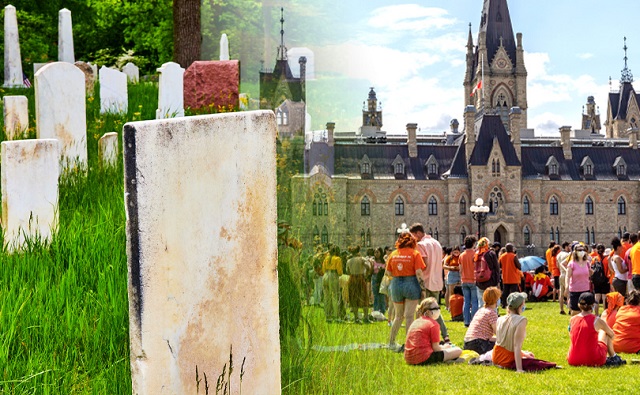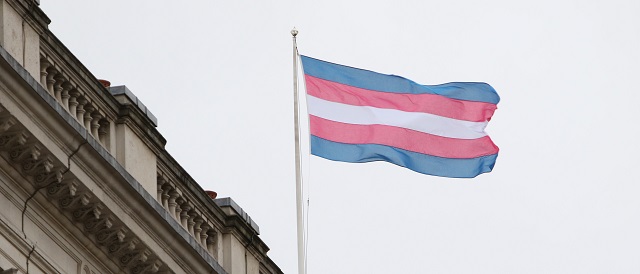Alberta
Alberta and British Columbia set to gain federal ridings from Liberal-held Ontario areas

From LifeSiteNews
Three Liberal-held ridings in Toronto and northern Ontario are set to be given to British Columbia and Alberta this spring, providing a potential benefit to the Conservative Party in the next election.
Alberta and British Columbia are set to gain more federal ridings, which could increase Conservatives’ chances of a federal victory in the next election.
According to a memo published October 10 by Blacklock’s Reporter, the next federal election will see fewer Members of Parliament (MPs) in Toronto and northern Ontario, and more in Okanagan, British Columbia, and suburban Alberta.
“One of our election readiness activities this year relates to electoral boundaries redistribution,” Chief Electoral Officer Stéphane Perrault testified at the House affairs committee.
The changes will come into effect under the Electoral Boundaries Readjustment Act on April 22, 2024, and elections after that date will “take place under the new map.”
The redistribution aims to rebalance the seats proportionately to population growth within the provinces. It will mean a record 343 seats in the House of Commons. Currently, ridings are divided into 122 in Ontario, 78 in Québec, 43 in British Columbia, 37 in Alberta, 14 in Saskatchewan, 14 in Manitoba, 11 in Nova Scotia, 10 in New Brunswick, 7 in Newfoundland and Labrador, 4 in Prince Edward Island and 1 each in the Yukon, Northwest Territories and Nunavut.
Under the new distribution, Toronto will lose the Scarborough-Agincourt riding held by Liberal MP Jean Yip, going from 25 to 24 federal ridings. Last election, all 25 Toronto ridings voted for the Liberals, at 51 percent support, making it the party’s largest popular vote in any major Canadian city.
“It is necessary to move a district to other areas of the Greater Toronto Area that, while equally diverse, are growing much faster than the City of Toronto,” said the Final Report of The Federal Electoral Boundaries Commission For The Province Of Ontario.
“The population of the City of Toronto only grew by 6.9 percent from 2011 to 2021 compared to 11.7 percent for the remainder of the province,” it wrote, arguing that keeping 25 seats in Toronto would “unfairly impact other parts of Ontario.”
Additionally, Northern Ontario is set to lose one of its nine ridings. In 2021, most ridings in Northern Ontario voted Liberal, with the exception of Kenora (Conservative MP Eric Melillo) and Timmins-James Bay (New Democrat MP Charlie Angus).
“We are in a very fragile time for democracy,” MP Angus testified May 8 at the House affairs committee. “We must do our best to reassure citizens that their voice counts and that they are being heard.”
Ontario’s ridings are set to be given to western provinces. British Columbia, which typically votes Liberal or New Democrat, will gain one new seat, Vernon-Lake Country in Okanagan.
On the other hand, Alberta, a historically Conservative province, is set to gain three ridings in Calgary McKnight, Airdrie-Chestermere and Spruce Grove-Leduc.
The Alberta ridings are not the only factor pointing to a Conservative victory next fall. Recently, Canadians have become increasingly fed up of Prime Minister Justin Trudeau’s leadership.
A September poll revealed that Trudeau’s disproval rates have reached a record high of 57 percent. The number should not come as a surprise as the polling also showed that 72 percent of Canadians are concerned with rising costs of living amid Trudeau’s ever-increasing carbon tax and energy regulations.
According to a September 5 report by Statistics Canada, food prices are rising faster than the headline inflation rate – the overall inflation rate in the country – as staple food items are increasing at a rate of 10 to 18 percent year-over-year when compared to the overall inflation rate of 4 percent.
Earlier this year, the Bank of Canada admitted that Trudeau’s federal “climate change” programs, which have been deemed “extreme” by some provincial leaders, are indeed helping to fuel inflation.
Furthermore, as a result of the Trudeau government’s Online News Act, Canadians can no longer access news on Facebook or Instagram as Meta refuses to pay the fees mandated by the act.
On the other hand, Conservative Party leader Poilievre has openly condemned the Online News Act, comparing it with George Orwell’s dystopian novel “1984.”
Furthermore, Poilievre has repeatedly promised Canadians that he will axe the carbon tax and restore the economy if elected prime minister.
Poilievre, however, is not without his own host of issues in the eyes of social conservatives.
While Trudeau came out to condemn the September 20 Million Person March against LGBT indoctrination in schools, Poilievre initially failed to support the immensely popular pro-family effort, and even went as far as having his office tell his caucus to refrain from making any statements about the movement.
Poilievre did eventually break his silence on the matter, slamming Trudeau for his condemnation of concerned parents and encouraging the federal government to leave LGBT discussions to families and not the education system.
Alberta
Pharmacist-led clinics improve access to health care: Lessons from Alberta

News release from the Montreal Economic Institute
In Canada, 35 per cent of avoidable emergency room visits could be handled by pharmacists.
Emulating Alberta’s pharmacist-led clinic model could enhance access to primary care and help avoid unnecessary emergency room visits, according to a new study from the Montreal Economic Institute.
“Pharmacists know medication better than anyone else in our health systems,” explains Krystle Wittevrongel, senior public policy analyst and Alberta project lead at the MEI. “By unlocking their full potential in prescribing and substituting medications, Alberta’s pharmacist-led clinics have helped avoid tens of thousands of unnecessary emergency room visits.”
Pharmacists in Alberta have the largest prescribing authority in the country, including the ability to prescribe schedule one drugs with special training.
Unlike in Ontario and Manitoba, Alberta pharmacists are authorized to substitute prescribed medications, which can help address issues such as adverse reactions caused by interaction with other treatments.
The study explains that this can help reduce pressure on hospitals, as prescription-related issues account for more than 10 per cent of emergency room visits.
Alberta’s first pharmacist-led clinic, in Lethbridge, sees between 14,600 and 21,900 patients per year since opening in 2022.
It is expected that there will be 103 such clinics active in the province by the end of 2024.
The researcher also links the success of the pharmacist-led clinic model in Alberta to pharmacists’ expanded scope of practice in the province.
Among other things, Alberta pharmacists are able to order and interpret lab tests, unlike their counterparts in British Columbia, Ontario, and Newfoundland and Labrador.
A 2019 peer-reviewed study found that pharmacists could handle 35 per cent of avoidable emergency room visits in Canada.
“By enabling pharmacists to play a larger role in its health system, Alberta is redirecting minor cases from emergency rooms to more appropriate facilities,” said Wittevrongel. “Just imagine how much faster things could be if pharmacists could take care of 35 per cent of the unnecessary load placed on Canada’s emergency rooms.”
The MEI study is available here.
* * *
The MEI is an independent public policy think tank with offices in Montreal and Calgary. Through its publications, media appearances, and advisory services to policy-makers, the MEI stimulates public policy debate and reforms based on sound economics and entrepreneurship.
Alberta
30 million contraband cigarettes valued at $25 million dollars seized in Alberta

New release from Alberta Gaming Liquor and Cannabis (AGLC)
Record setting contraband tobacco seizures result from AGLC investigations
Alberta Gaming Liquor and Cannabis (AGLC) recently concluded several investigations which netted two of the largest contraband tobacco seizures in Alberta history. The combined total of the contraband tobacco seized was 154,800 cartons of contraband cigarettes (30.7 million individual cigarettes). These seizures are a result of the work conducted by AGLC’s Tobacco Enforcement Unit with the assistance of provincial law enforcement agencies.
- In a January 2024 investigation, approximately 43,500 cartons (8.7 million individual cigarettes) were seized. This equates to $7 million in retail value with a provincial tax avoidance of $2.4 million. This included the seizure of 15,000 grams of contraband shisha.
- In April of 2024, 60 wrapped pallets were seized from a warehouse setting netting a total of 111,300 cartons of contraband cigarettes (22 million individual cigarettes) which equates to over $18 million in retail value with a provincial tax avoidance of $6.6 million.
- Criminal Charges are pending in both cases.
“These are significant contraband tobacco investigations involving individuals that are part of organized networks whose proceeds defraud Albertans millions of dollars in tax revenue. AGLC will continue to work with our partners to investigate and disrupt the individuals and organizations involved in these illegal activities as part our commitment to a strong contraband tobacco enforcement program in Alberta.”
- Gary Peck, Vice President, Regulatory Services, AGLC
“Contraband tobacco hurts law abiding businesses that follow the rules, and it costs Albertans millions each year from lost tax revenue. Our government is committed to keeping illegal tobacco off the streets and ensuring that the sale of tobacco products comply with the law.”
- Dale Nally, Minister of Service Alberta and Red Tape Reduction
Over the last nine months, AGLC’s Tobacco Enforcement unit has seized an estimated 35 million contraband cigarettes and 115,000 grams of contraband shisha from across the province. The total potential lost tax revenue is estimated to be more than $10.1 million.
Contraband tobacco:
- is any tobacco product that does not comply with federal and provincial laws related to importation, marking, manufacturing, stamping and payment of duties and taxes;
- comes from four main sources: illegal manufacturers, counterfeits, tax-exempt diversions and resale of stolen legal tobacco; and
- can be recognized by the absence of a red (Alberta) or peach/light tan (Canada) stamp bearing the “DUTY PAID CANADA DROIT ACQUITTÉ” on packages of cigarettes and cigars or pouches of tobacco.
In addition to lost revenues that may otherwise benefit Albertans, illegally manufactured products also pose public health and safety risks as they lack regulatory controls and inspections oversight.
Albertans who suspect illegal tobacco production, packaging and/or trafficking are encouraged to contact AGLC’s Tobacco Enforcement Unit at 1-800-577-2522 or Crime Stoppers at 1-800-222-TIPS (8477).
Under a Memorandum of Understanding with Alberta Treasury Board and Finance, AGLC enforces the Tobacco Tax Act and conducts criminal investigations related to the possession, distribution and trafficking of contraband tobacco products. In 2022-23, provincial revenue from tobacco taxes was approximately $522 million.
-

 Brownstone Institute1 day ago
Brownstone Institute1 day agoMedical Elites’ Disgrace Over Ivermectin
-

 Brownstone Institute1 day ago
Brownstone Institute1 day agoThe WHO’s Proposed Pandemic Agreements Worsen Public Health
-

 COVID-1916 hours ago
COVID-1916 hours agoJapan’s most senior cancer doctor: COVID shots are ‘essentially murder’
-

 National1 day ago
National1 day agoDespite claims of 215 ‘unmarked graves,’ no bodies have been found at Canadian residential school
-

 John Stossel22 hours ago
John Stossel22 hours agoProtecting Free Speech: The Early Warning Signs From Around The World
-

 COVID-191 day ago
COVID-191 day agoTrudeau’s public health agency recommends another experimental COVID booster
-

 armed forces9 hours ago
armed forces9 hours agoTrudeau government has spent $10 million promoting DEI in the military as recruitment flounders
-

 Health1 day ago
Health1 day agoTHE WPATH TAPES: Behind-The-Scenes Recordings Reveal What Top Gender Doctors Really Think About Sex Change Procedures

